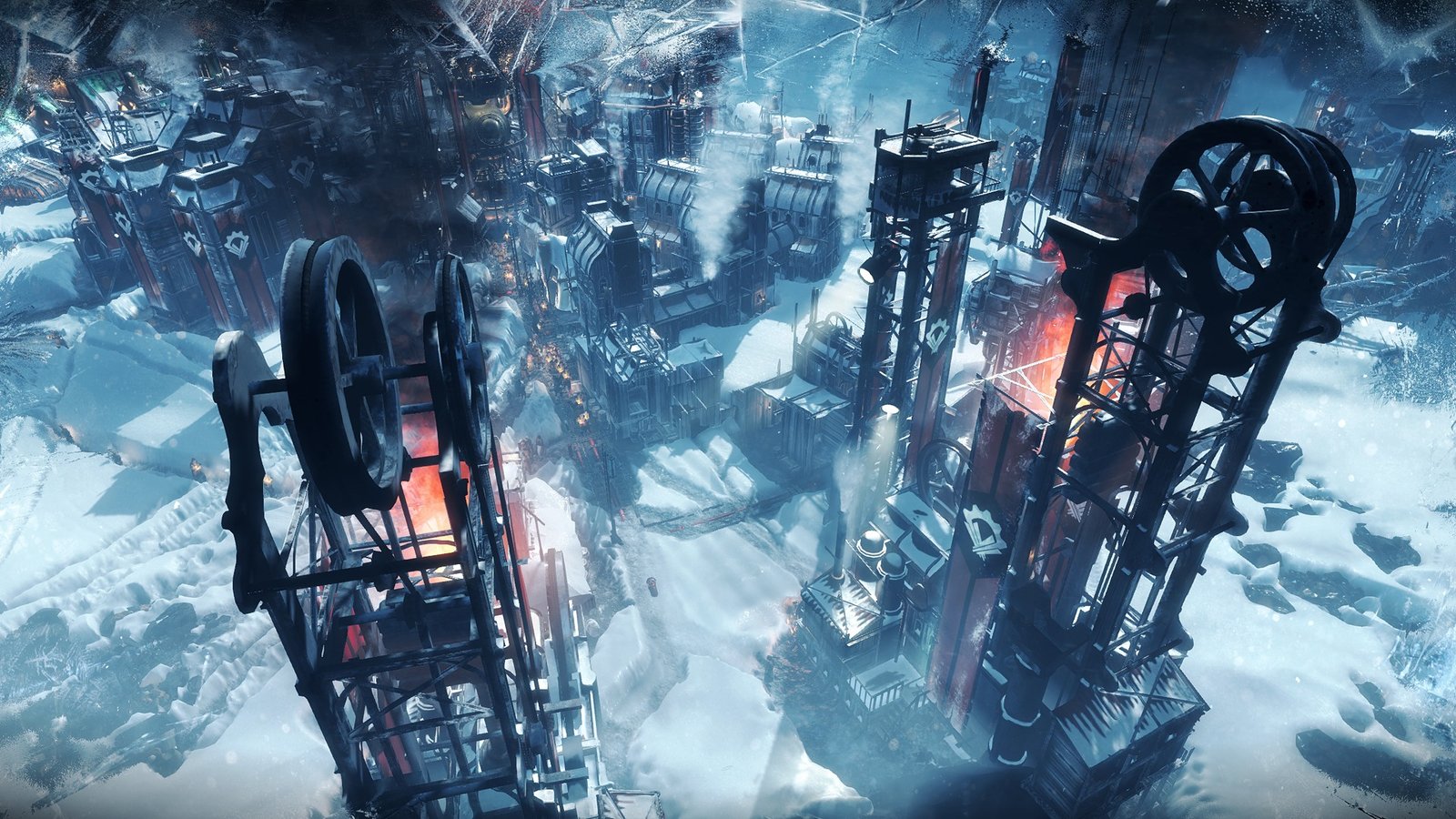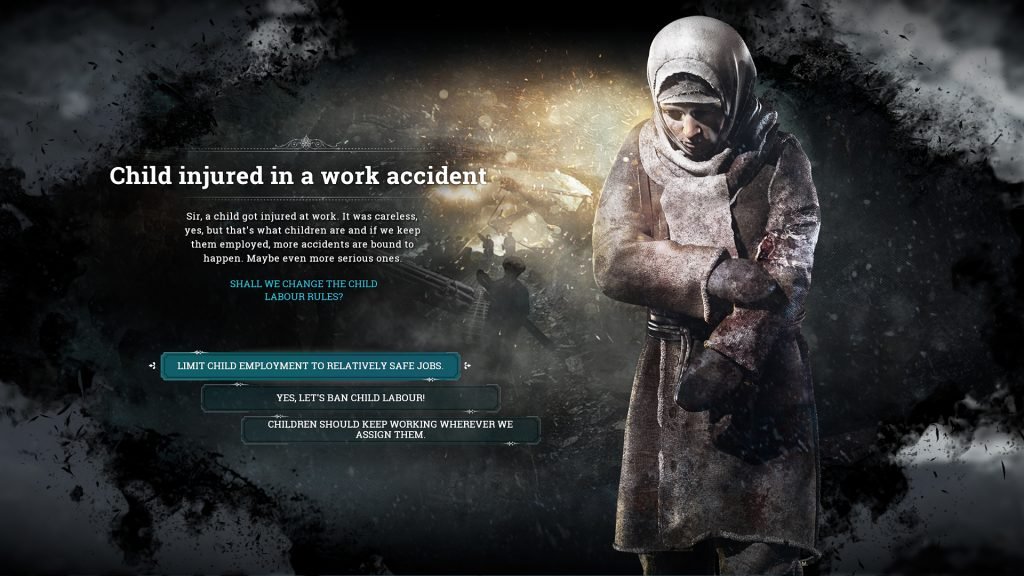The eventual descent into cold decision making
Perhaps an apt description, considering its environmental theme, but the game’s narrative quickly, at least for me, pushes into an area of having to make cold, hard decisions to ensure the survival of New London. After the initial 20 days or so, you suddenly realize that the decisions you are making are no longer around the overall comfort of your small handful of survivors, but rather to maximize the survival and output of your couple hundred of survivors. The game has fast forward, play and pause mechanic, and very quickly you are using the fast-forward to get through the long cold nights and to the next research or law that you can pass.
I found that this need to speed up is accentuated by the telegraphed time-line of when certain weather events will happen. You have a very specific weather forecast that the temperature will drop by so many degrees. What this does I found is that it rationalizes your decisions far in advance. The decision is made for you almost because we needed heaters because we know it’s going to get cold. I would have preferred a vaguer narrative element of a forecast warning us that in roughly 8–13 days the temperature will drop, but we don’t know how much. A random event that required you to be prepared, and forces you to make the tough decisions, without having all the information, and hoping you made the right decision. Did the ends really justify the means then?
The removal of emotion
The ends justifying the means is accentuated with a secondary choice in your books of laws. Once you reach a certain you are able to make the choice between Law and Faith. In my opinion, it’s a varying choice between oppression and manipulation in different forms. But it does feel that at times, that once you’ve made up your mind around “winning the game” rather than ensuring that your people should survive, the choice of what to choose becomes very easy.
Take the Law and Order choice, without spoiling too much, it unsurprisingly allows you to go down the route of an oppressive police state. And from what I’ve understood from the developers, it is an intended slow descent into the choices that bring about fascism. Which I find an inspired concept, but the nuances may be lost of the Competitor persona type, who simply wishes to beat the game.
The unfortunate outcome of wanting and the ability to “beat the game” is emphasized by the very literal removal of the player from many of the emotional aspects it tries to present. It’s narrative hooks of grabbing the emotional state of the player I feel are hampered somewhat by the birds-eye view of the player. It is unfortunate that you can never fully zoom into a street-level view and truly see and experience the horror of having to live and survive in the frozen squalor that the people of New London need to. Some may feel their heart string being tugged from a distance, but many may not, due to this distance. But I do understand that this may not have possible in terms of development for the studio.
Another issue that removes the player, but only after an initial playthrough is the linearity of the experience. Naturally, there is a story and the developer wishes the player to discover it, step by step. Unfortunately, on the second or third, or etc. playthrough the story is no longer emergent. The scouts you send out to discover the wasteland will always meet the same challenges, often with the same outcomes. My emotional connection with the possible scattered survivors that I needed to rescue become moot, as I knew they would be in the same state whether I went to save on the day 15 or day 25. A regrettable outcome of a linear narrative, but often understandable and unavoidable. I personally would have preferred the emergent, random narrative, but that is a personal choice, and not everyone enjoys those.



